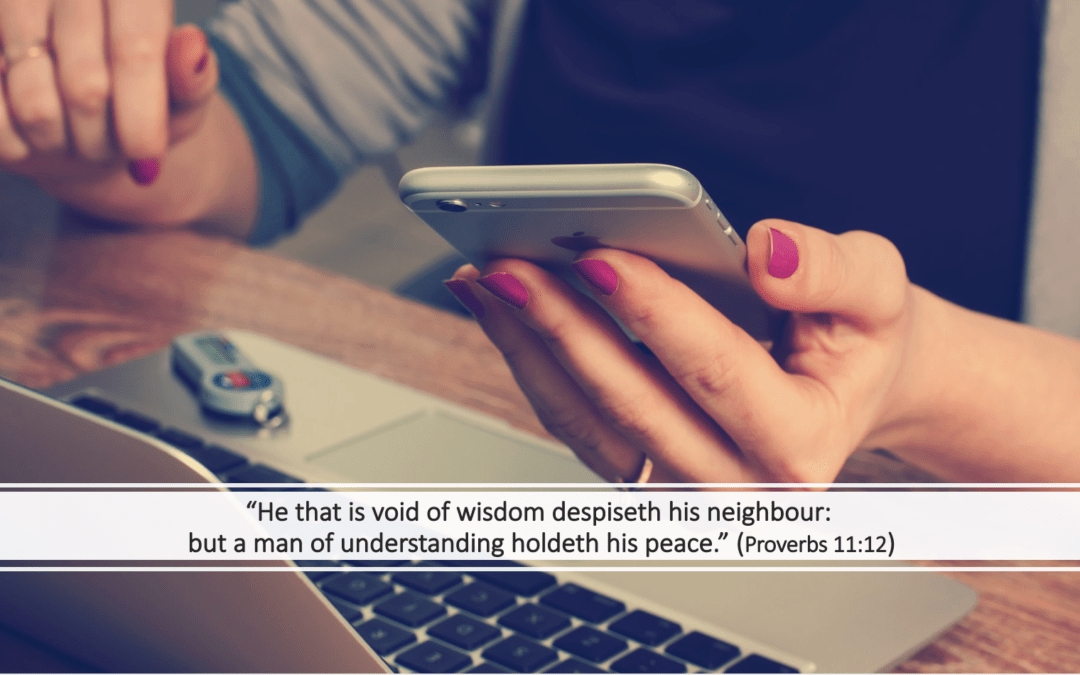Rebekah Hawk wrote our devotional post this week. Be sure to head over to the contributor’s page to learn more about her.
The words hate and despise are such strong words, and I don’t know about you, but I often say something like, “I don’t hate so-and-so; I just strongly dislike him!” Like the Pharisees, I am tempted to smugly ask, “And who is my neighbor?” Well, Jesus helpfully explained that my neighbor is anyone I meet!
Most of us have no trouble thinking amiably about the people we meet in the physical public world: the everyday neighbors we interact with at the grocery store, park, or gym. These neighbors pose very little threat to us and our ideologies.
However, when we look inside the private walls of our homes, we find devices which we carry everywhere, and in those devices lies a portal inviting us to view with disgust, anger, and contempt a seemingly infinite host of humans—both strangers and “friends.”
What are you and I to do? How do we keep from being fools or “void of wisdom” when it is so easy to despise our neighbors? Proverbs 11:12 says we show our understanding by holding our peace! We understand the gospel; therefore, we hold our peace when our neighbors speak erroneously—we understand that we, apart from the working of the Holy Spirit, cannot convince anyone of anything truthful.
We may be compelled by the Holy Spirit to correct a believer privately because we understand that we are obligated to follow the Matthew 18 principle when dealing with our brothers and sisters in Christ; however, we have absolutely no authority to correct a nonbeliever’s sin or sinful ideology. None!
When a nonbeliever asks questions about whether she is sinning in a private conversation with a Christian she trusts, it is an entirely different situation from being told by a stranger that she is sinning (whether on a public platform or private message).
Furthermore, if we don’t know the person well enough to know whether he is a Christian or not, do we really have enough of a relationship to be using the Matthew 18 principle? We should be applying the Matthew 18 principle inside the confines of the local church, not on Facebook with strangers.
Let me clarify that while we are not told to correct the sins of the unbeliever, we are told to flee from evil, to be holy, and to speak the gospel boldly. The same understanding that compels us to hold our peace is the same understanding that keeps us from “liking” and accepting, supporting, and celebrating what the Bible calls sin. We must hold our peace when confronted with sinful ideologies while refraining from showing support for sinful practices on social media.
Surrendering to the Holy Spirit’s leadership is the key to gaining the understanding I need to stop hateful thoughts. He reminds me that all humans are made in the image of God, and by meditating on His Word and how God views mankind, I can allow the Holy Spirit to correct my tendency to despise—Errr—strongly dislike my neighbors.


Recent Comments